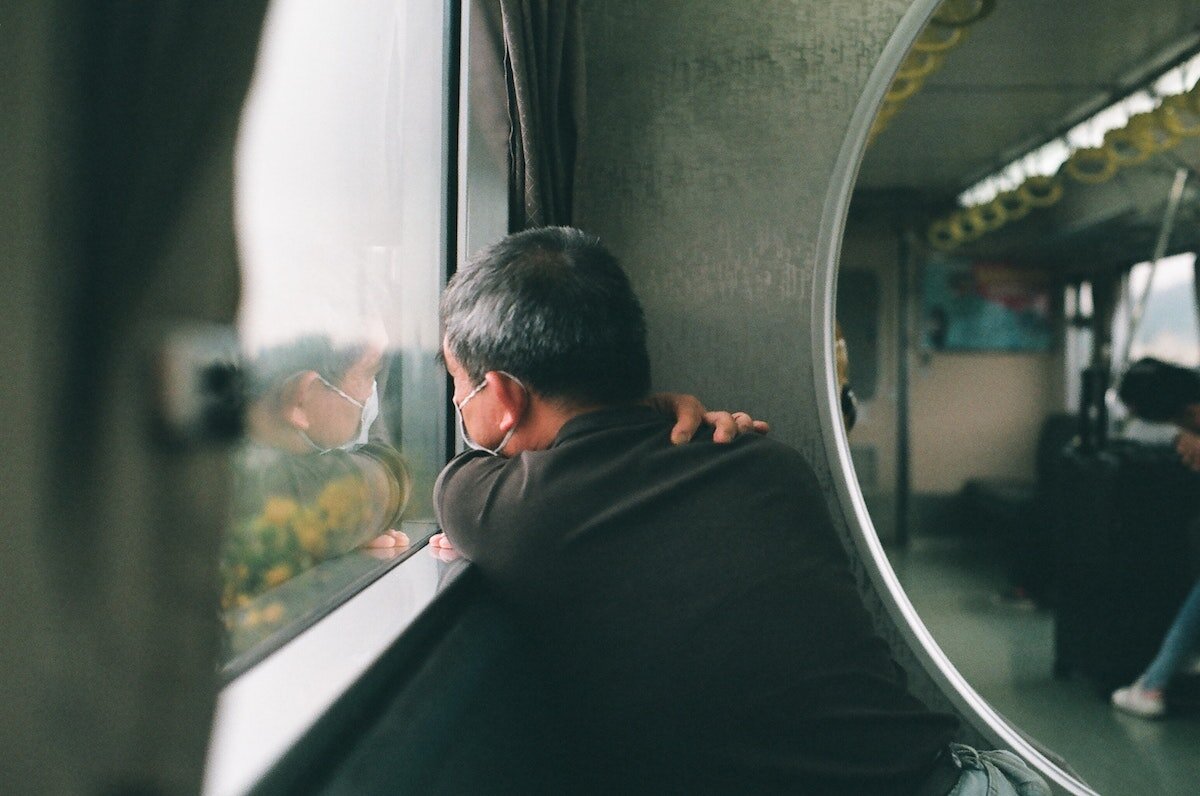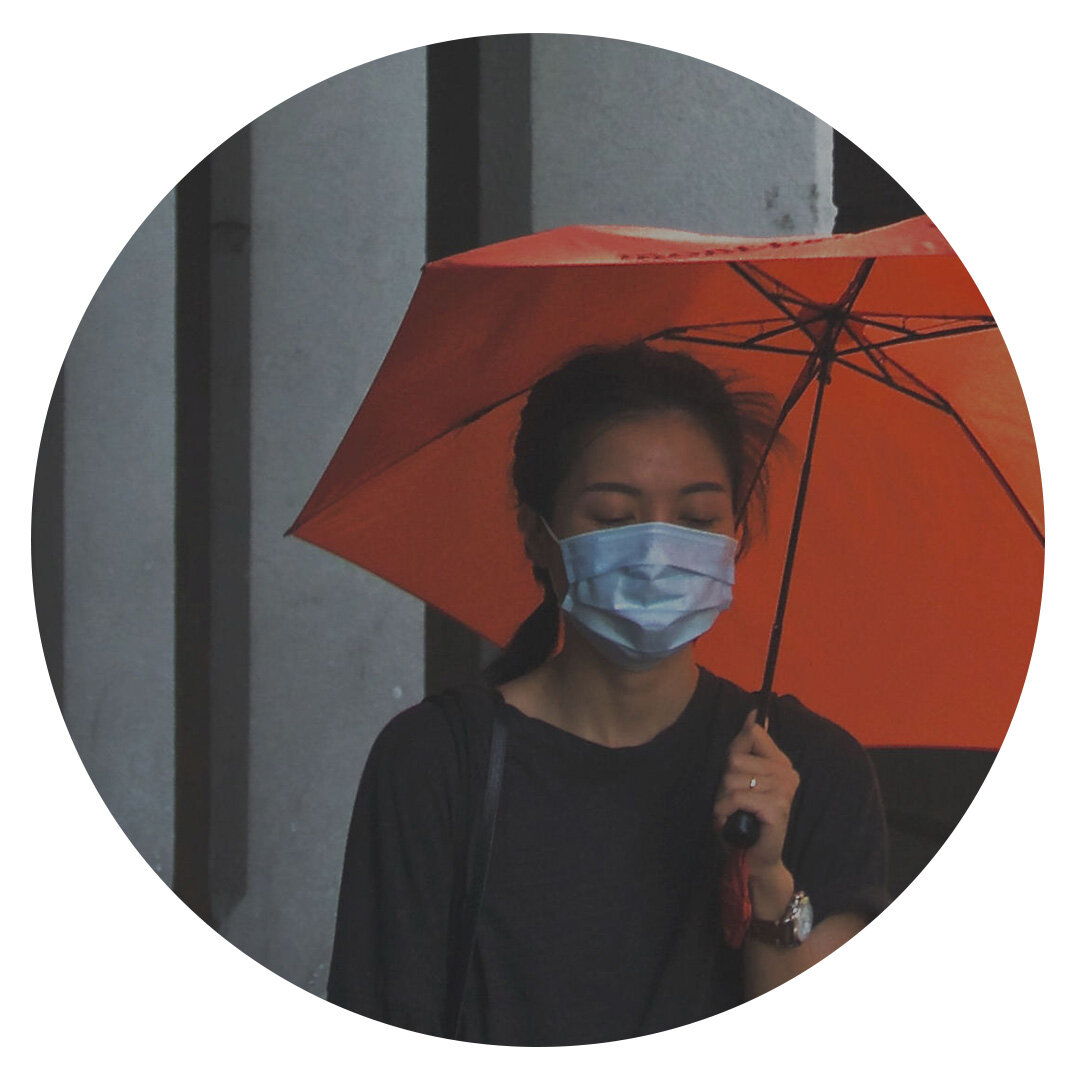
Corey Jackson is the Senior Pastor of Trinity Park Church in Cary, North Carolina.
I am honored to pastor a church in North Carolina that is home to nearly 30 ethnic backgrounds, many of which are Asian. Recently I reached out to several of my Chinese and other Asian friends both inside and outside our church to ask them how they were doing during COVID-19.
Instead of giving me polite answers, they opened up to me about their deep feelings of anger, fear, and anxiety. Their words have stopped me in my tracks. They have haunted me.
I have no easy pastoral answers for the xenophobia they are experiencing. There are no quick Bible verses I can send back to them to ease their minds about the racism they feel.
If you are not Asian American, please keep reading. Depending on your political background you may think I’m being alarmist. Or you may think my friends are overly emotional. They are not. Many are as highly educated as one can be. They are doctors, executive leaders, research scientists, nurses, theologians, and pastors. They are some of the smartest, most gifted, and spiritual people I know.
Never miss a story
Here are four observations and four challenges for us to consider as we seek to love our Chinese and other Asian neighbors during the coronavirus.

The Fear They Experience Because Of Xenophobia Is Real
Each of my friends expressed great concern to me about incidents of violence targeting Asians in the U.S. during COVID-19. One member of our church told me of a recent crime in East Harlem, where an Asian man was kicked and told to “go back to China” because he was Asian. Another neighbor told me about an incident last week at a Sam’s Club in Texas where an Asian father and his son were racially attacked at knifepoint. After its official launch on March 19, Stop AAPI Hate, a new initiative of the Asian Pacific Policy and Planning Council, received 673 reports of coronavirus discrimination from Asian Americans across the country in its first week alone.
For the first time, many Chinese are buying guns to protect themselves. WeChat now even has a ‘Chinese Gun Purchasing Group.’ One Asian church member told me he is so afraid of racism right now that he only shops for groceries at H Mart (an Asian grocery chain) to minimize his exposure to non-Asians. He was specifically relieved that the first case of COVID-19 in North Carolina was not an Asian.

Condemn Racism Against Chinese and Other Asians Publicly
Many of you are Christian leaders. No matter who you are or what your position is, during COVID-19 I challenge you to use whatever platform God has given you to condemn hatred against Chinese and other Asians – both locally here in the U.S. and globally as well.
We are called to love the image of God, meaning all of the neighbors God places around us. And we are called to love all of our brothers and sisters in the church. Loving your Chinese and Asian neighbors requires that you do all you can to protect them from racism and xenophobia. This week, in your pastoral prayer or your sermon or in a blog or on social media, take a moment to publicly acknowledge this reality, speak against it, and call people to repentance for any and all racism against Chinese or other Asian people.

They are Frustrated About President Trump’s Renaming of the Virus
Many of my friends expressed, not surprise, but concern over the president persistently referring to COVID-19 as “The Chinese Virus.” They understand the geopolitical struggle between the U.S. and China. They also understand that this rhetoric is part of the propaganda war between our nations. But they – along with many other Asians in their social networks – are deeply concerned about how Americans will begin to perceive Chinese (and other Asians they meet) because of this and that this renaming might also fuel the nationalism and xenophobia that was already growing around the world.

See the World Through a Gospel Lens More Than Through a Geopolitical Lens
As Christians we are not called to see the world mainly through a lens of geopolitics; we are called to see our world through the lens of the gospel. Though the U.S. and China are locked in a trade war and are now battling over the coronavirus, we must be disciplined in our thinking as followers of Jesus. We must first think as disciples rather than as Americans.
There are 1.3 billion individual images of God living in China. Some estimates say China has more followers of Jesus than any other nation on earth, perhaps 100 million! Will we allow the geopolitical rivalry between our countries to stifle our love for Chinese and Asian people? We must learn to rigorously think through the lens of the gospel during this pandemic.

They Are Anxious About Being Separated From Their Family and Friends
We are just now beginning to feel the first pains of anxiety for our families under COVID-19, but Asian Americans have been extremely worried since the middle of January for the safety of their families back in their home countries. One friend of mine, who lives here in NC but whose parents, brother, and other extended family live in Wuhan expressed to me the helplessness he has felt as he watched the pandemic unfold in his hometown.
He related to me that during the quarantine, local officials put unfair laws in place such as requiring people to wear masks at all times if they left home. His problem was not with the policy itself – it was with the local authorities who ran out of masks to supply to the people. His father only had one reusable cotton mask for the whole family – a mask which wasn’t designed to stop the coronavirus in the first place.
Another Chinese neighbor told me she has a friend in the U.S. who is pregnant whose parents also live in Wuhan. For weeks, her friend could not stop crying when she thought about the danger her parents were in; she wondered what effect her anxiety might have on the child she is carrying.
Chinese people living in the U.S. are filled with two contradictory emotions as they process what has unfolded in China since mid-January. On one hand they are appalled at the lies, the lack of transparency, and the unfair enforcement of rules by Chinese officials. But on the other hand they are proud of their families and friends in China – for how they have responded, undergoing massive personal hardship to stop the spread of the coronavirus.

Ask Chinese and Other Asians “How is your family doing back in your home country?”
Another Chinese friend who is a nurse – serving on the front lines of this crisis here in NC – wrote to me from quarantine. She is self-isolating from her husband and children right now because her job necessitates that she work face to face with patients during this time of the coronavirus.
A patient recently asked her: “How is your family doing right now back in your home country?” This simple question brought my friend to tears. As a nurse she spends her time caring for others, but every day she carries the weight of anxiety around the hospital with her.
Since we are social distancing these days and it is difficult to ask in person, I encourage you to reach out to an Asian friend remotely – using social media, or WhatsApp, or maybe with a phone call. Ask them how their family is doing back in their home country during COVID-19. Asking that simple question will convey more care to them than you can imagine.

They Are Worried About Their Future And The Future of Their Children
Nearly all of my friends are concerned about what COVID-19 will mean for their future and the future of their children in America. Some of their children have already heard negative comments about China from other kids on the elementary school playground – such as “the Chinese have the coronavirus.” Comments like these have made one of my neighbor’s kids feel uncomfortable, embarrassed, and isolated. Several of my friends mentioned concern about what their children will experience when they go back to school after they reopen.
With economies failing and people dying, Chinese and other Asians are worried the world will need someone to blame after all this. Most expect the recent cruelty and racism to extend years out because history shows us these kinds of things tend to stay in our collective memories for decades.

Let Your Asian Friends Know You Love Them and Stand With Them
How will the church respond when our society blames this crisis on China and in doing so either intentionally or unintentionally groups all Chinese and even non-Chinese Asians into our stereotyping?
Reach out to your Chinese and other Asian friends and let them know you stand with them and with their children today and will keep doing so in the future. Educate your kids about racism in general and encourage them to be on the lookout for prejudice against Chinese and other Asians during COVID-19.
Let your Chinese and other Asian friends know that you are someone they can talk with honestly about their experience of xenophobia and racism – anytime, but particularly during the coronavirus. If they trust you enough to open up to you, make sure to listen to them without judgment or prejudice.

Racism and hatred can target any of us regardless of our ethnic background. So, if you experience injustice what should you do? Jesus said in Matthew 11:28: “Come to me all you who are weary and burdened and I will give you rest.” He does not discriminate along racial lines. Jesus freely accepts all – regardless of ethnicity – who look to him for grace and healing.
When we are included in Christ by faith, we join a multi-racial family made up of many nations and many stories covered by the blood of one Redeemer. “For he himself is our peace, who has made us both one and has broken down in his flesh the dividing wall of hostility.” (Ephesians 2:14)
No matter if you have been the recipient of injustice or the initiator of it – there is no sin so great that it cannot be cleansed completely through the cross of Christ. Only at Jesus’ cross and empty tomb will we find the end of racism and hatred. Turn to Christ today for healing and forgiveness.

More COVID-19 Resources
We’ve put together a special page devoted to ways we can learn from, love, and pray alongside our Chinese brothers and sisters during the coronavirus pandemic.
































